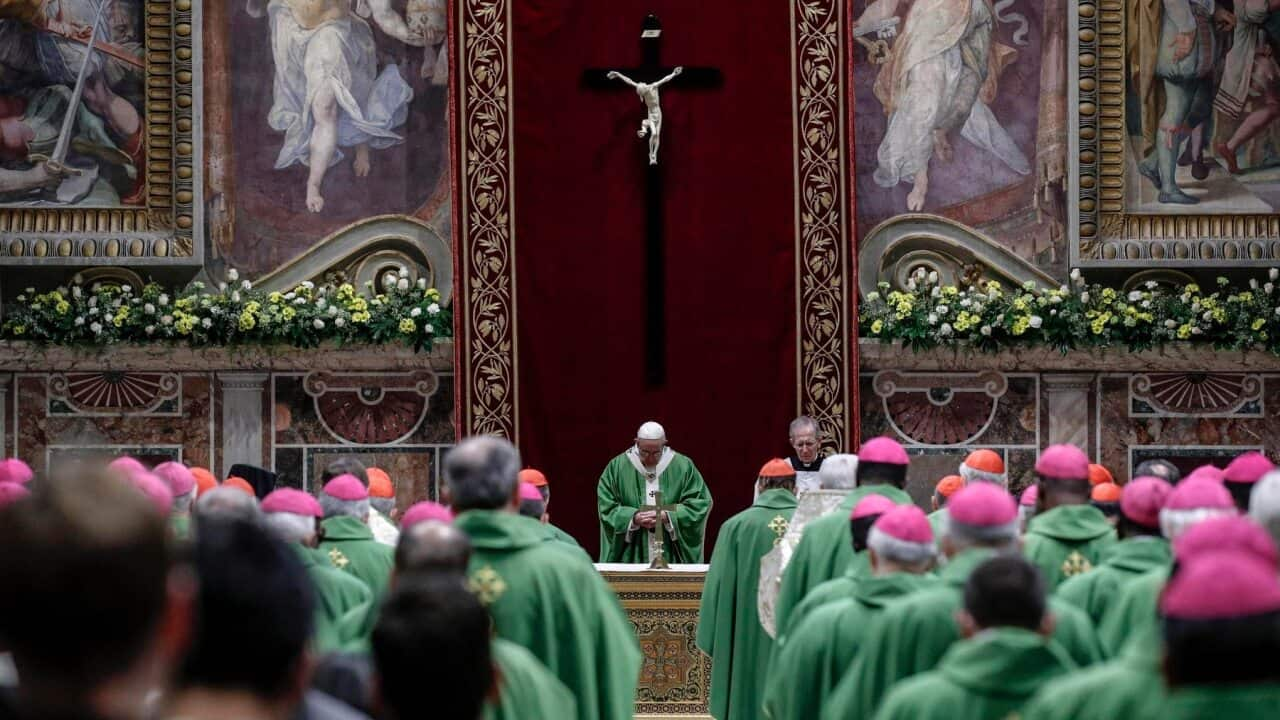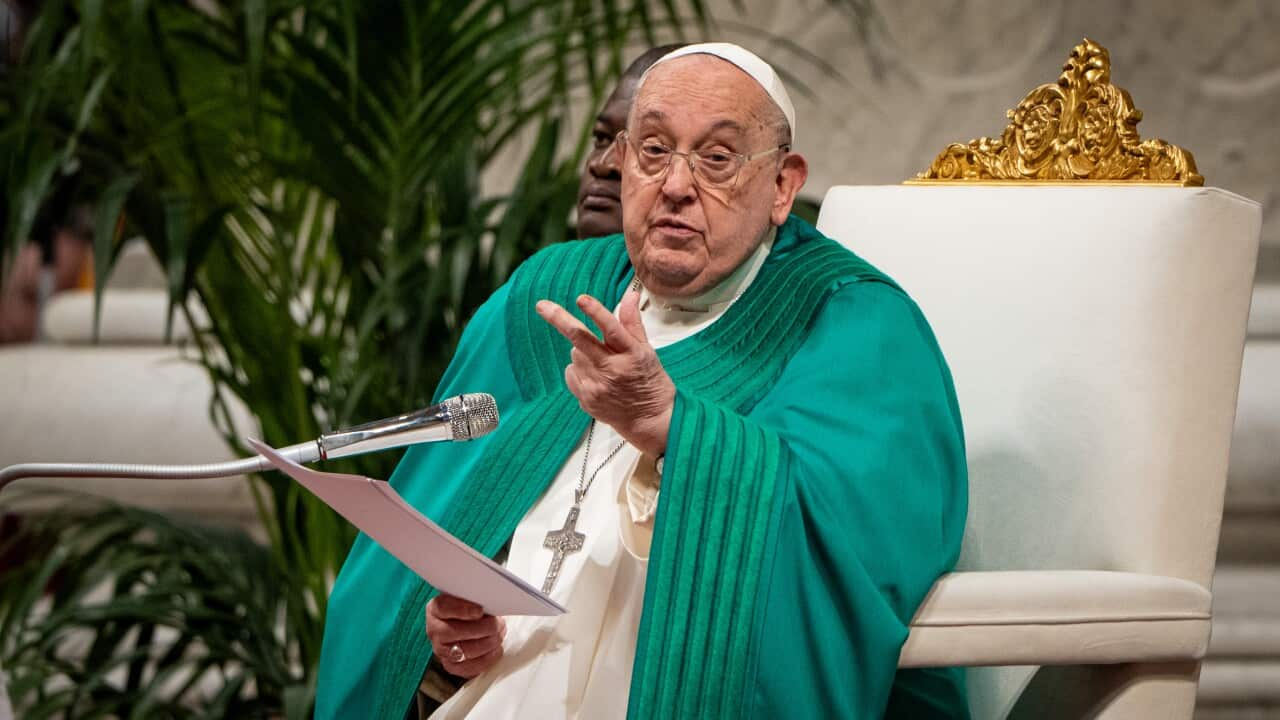Pope Francis, the head of the Catholic Church, and religious leader for more than a billion people, has died aged 88.
He had recently spent five weeks in hospital with a serious bout of double pneumonia.
Known for his humility, compassion and a reformist approach to leadership, Francis will be honoured by adherents and leaders worldwide.
His papacy took him to more than 50 nations, travelling more than 400,000km in his quest to carry an ancient institution into the modern world.
Who was Pope Francis?
Born Jorge Mario Bergoglio on 17 December 1936 in Argentina, the son of Italian migrants survived a life-threatening bout of pneumonia as a 21-year-old.
The young Bergoglio earned a diploma in chemistry before studying to become a priest.
He was ordained in the Jesuit order just days before his 33rd birthday and was appointed archbishop of his home city of Buenos Aires in 1998.

Cardinal Jorge Bergoglio became Pope Francis in 2013 Source: Getty / LatinContent
Francis, the first Catholic leader ever chosen from the Americas or the Jesuit order, was immediately dubbed 'the people's pope'.
How was Francis received as pope?
Vatican spokesman Father Thomas Rosica says the choice was supported.
"There was an immediate connection. He made a connection with his diocese — the Diocese of Rome — he referred to that.
"The pastor came to meet his people. And it was beautiful. Then he took the microphone again and he didn't follow the book. Thank God."
But from the moment it began, his papacy faced challenges.
Chief among them was addressing a litany of child sex abuse scandals in the church and lifting the "veil of silence" around such crimes.
The pope himself came under intense scrutiny in 2018, when he defended a Chilean bishop Juan Barros, who was accused of covering up priests' sexual abuse, and dismissed his victims' allegations as 'slander'.
It was a move that caused widespread anger.
Clerical abuse victim James Hamilton, speaking at the time, said: "What the Pope has done today is offensive and painful. Not only for us, but against all of those who fight to create less abusive and more ethical contexts in places like the Catholic Church."
Later that year, Francis apologised, saying he had made a "grave error" in judgement.

Brazil has the highest number of Catholics of any country
What reforms did Francis lead in the Catholic Church?
He went on to implement the most extensive Church reforms in decades, criminalising grooming by priests under Church law and abolishing the secrecy rules that long allowed sexual abuse to go unreported.
He said: "It is my hope that the gravity of the abuse scandals, which have cast light on the failings of many, will serve to emphasise the importance of the protection of minors and vulnerable adults on the part society as a whole."
Sexuality would prove to be another defining issue.
In 2016, he told reporters that the Catholic Church owed gay people an apology.
And in 2020, he broke ranks once again, declaring his support for same-sex civil unions in a documentary about his life.
The Vatican later clarified that priests are not permitted to bless such unions.
Then after a visit to South Sudan he spoke out again, denouncing the newest nation on earth for criminalising homosexuality.
This is not right. People with homosexual tendencies are children of God. God loves them.
Many praised him as a progressive pope in the face of conservative opposition from within his own church.
Others say he simply reclaimed one of the Church's oldest traditions: to care for others.
He called on the Church to embrace divorced Catholics, who were historically shunned, and was fiercely outspoken about wealth inequality.
He has long supported refugees and migrants and in mid-February sent a letter to US bishops criticising the Trump administration's planned
One of the Pope's greatest passions was the environment, criticising its human destruction as a sin against God.
He said: "I appeal to all the world's leaders to act courageously, with justice, and always tell the truth to people, so that people may know how to protect themselves from the destruction of the planet, and how to protect the planet from the destruction that, very often, we trigger."

Pope Francis met with some Israeli hostages who were kidnapped by Hamas in the October 7 attacks. Source: EPA / Vatican Media handout
His public addresses became fewer in his final years, often pleading for peace in a world wracked with war.
He met the families of Israeli hostages, and revealed
He snapped selfies with the public, replied personally to letters and phone calls from regular people and even visited a prison to wash inmates' feet, saying bishops are not the world's most important people, but must be its greatest servants.
He was a pope seemingly unafraid to challenge the way the church operated.
His efforts to do so were a bid to make one of the world's oldest institutions a more inclusive place.



